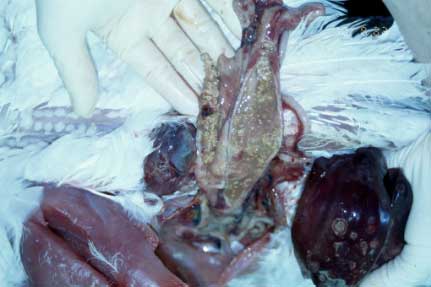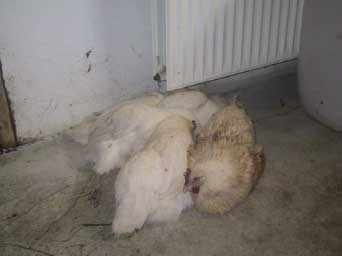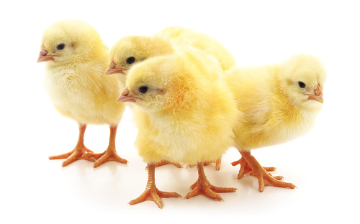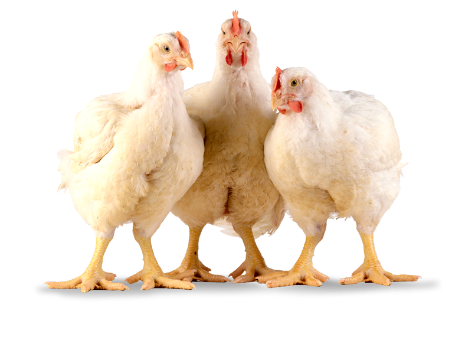
COMBAT POULTRY PARASITES
Intestinal Health
Heavy, unmitigated parasitism can negatively affect weight and flock uniformity, and producers that fail to control parasites in their flocks will suffer production drops and sacrifice profit potential. Poor flock uniformity especially affects layer and breeder operations since layers that do not reach weight targets often do not achieve persistent egg production. Furthermore parasites can predispose birds to other important pathogens like Clostridium, or they serve as vectors for blackhead disease by transporting Histomonas eggs into the bird.

Photo courtesy of Anders Permin DVM, PhD
Treatment Facts
The objective to deworming is to eliminate the worms from the hens thus reducing production losses and to prevent contamination of the environment. Programmes for deworming of poultry are adjusted to the age and/or the reproduction cycle of the poultry. The standard procedure is treatment of hens before the commencement of laying, followed by a move to clean, stable housing. Treatment during laying period should be done upon diagnosis of parasites in the flock . Broilers raised on deep litter systems may also be infested with worms and can benefit from deworming if the infestation diagnosed on the farm.

Photo courtesy of Anders Permin DVM, PhD

Due to legal requirements, certain sections of this website can only be made accessible to healthcare professionals. We invite animal healthcare professionals to register an account to obtain access to all restricted content on this website.
Panacur® AquaSol delivers uniform dosing across the entire flock, leaving no bird untreated and keeping your flock’s intestinal health in top shape.

Contact Us
Want more info about cost-effective, convenient options for treating worms in poultry? Fill out the form below and an MSD Animal Health specialist will get in touch with you to speak about parasitism in chickens.

